'Right now, we're in chaos': pianist and Leeds Lieder director Joseph Middleton on catastrophic cuts to arts funding | reviews, news & interviews
'Right now, we're in chaos': pianist and Leeds Lieder director Joseph Middleton on catastrophic cuts to arts funding
'Right now, we're in chaos': pianist and Leeds Lieder director Joseph Middleton on catastrophic cuts to arts funding
A superb organisation is commended, then gets its grant axed for missing 'data collection'
“If you want a picture of the future, imagine a boot stamping on a human face – for ever.” Replace a few of George Orwell’s words in 1984 and most musicians right now would find alarming resonance in the statement: “If you want a picture of the present, imagine a boot stamping out classical music – for ever.”
Orwell’s slightly altered prophecy could be used to sum up the widespread cultural vandalism happening in the UK right now despite the fact we are world-leaders in this area (as everyone would know who watched the recent Coronation). Because of choices that are being made by a few in positions of power, we are being fast-tracked to a society where culture and especially classical music is being systematically stamped out of the communities in which we live.
The consequence of government policy in education and, by extension, the lack of funding for classical music from the supposedly politically independent Arts Council England (ACE) is having an alarming effect. The vast majority of people are effectively being barred from coming into contact with classical music, the exact opposite of what most of us working in this sphere are trying to achieve. Why would anyone want to support this direction of traffic? 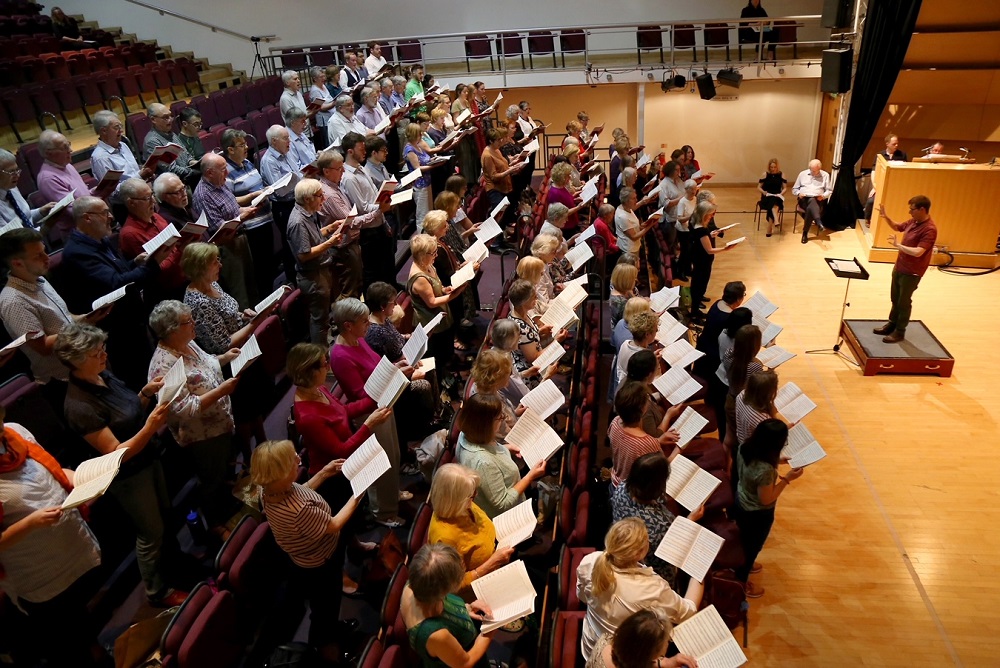
But don’t take my word, or indeed that of the national press for it, read exactly what ACE wrote in 2023 in response to our application for funding: “The Festival has gone from strength to strength over the last decade due to its ability to provide excellent opportunities to outstanding young artists alongside bringing famed international singers to England. The quality of the programming, performances, participatory work and digital content is testified by the continued interest in the festival from national media. The application shows how this will continue in the current project, bringing world-class artists to audiences in England.” So far so good. Maybe with feedback like that we may continue to attract funding?
Our growth and ability to bring the highest quality art to as many people as possible has been directly in line with the excellent partnership we have enjoyed with ACE. Between 2015 and 2022 we had enjoyed a 100% success rate when applying for grants to support the Festival. In the pandemic they were particularly helpful, allowing us to act nimbly with their investment. We broadcast widely, programmed socially distanced concerts supporting scores of freelancers, and distributed high quality singing programmes to schools across Leeds to be used through home schooling. Arts Council funding has been the backbone of our success. 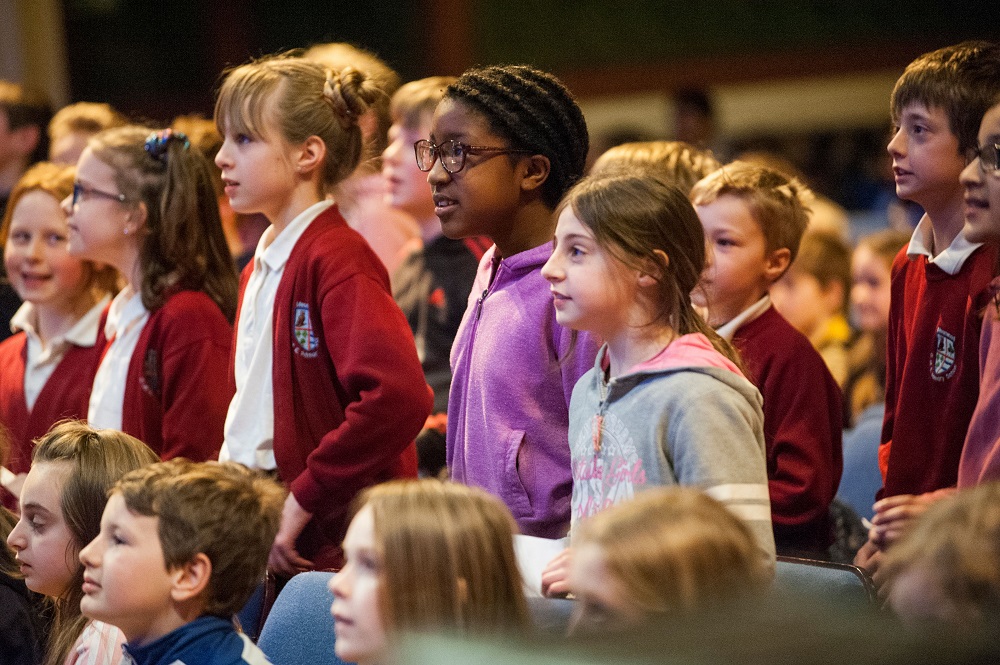 Our wider community receives a great deal in return for ACE providing a 5th of our annual budget, and not only artistic. In 2017 we commissioned an independent audience development review of our work as part of our ACE-funded grant. It found that for £30,000 investment from ACE, our four-day Festival ploughed more than £200,000 back into the local economy.
Our wider community receives a great deal in return for ACE providing a 5th of our annual budget, and not only artistic. In 2017 we commissioned an independent audience development review of our work as part of our ACE-funded grant. It found that for £30,000 investment from ACE, our four-day Festival ploughed more than £200,000 back into the local economy.
2023 for Leeds Lieder was to be a really exciting year: we have our biggest Festival to date planned for June 9-17. Tragically, our activity coming out of this year will look very different. Our application to ACE has been rejected. Our wings haven’t been clipped so much as cut off. This is despite having scored top marks in their criteria for most of the application. To use ACE’s own words again from our rejection letter: “The ’23 Festival programme evidences clear commitments around: showcasing/commissioning work by women and ethnic minority composers; programming and supporting a wide variety of artists in terms of sex or ethnic background, with nearly 30% of headline artists being from global majority backgrounds…The application also evidences how the project creates a demonstrable, lasting benefit for participating groups, particularly through LL’s schools programme, for which Leeds Music Partnership has helped LL to identify schools/academies with a high proportion of pupils on free school meals.”
So what has gone wrong? Why will we have to use our reserves to pay for this year’s Festival and already look to cut activity this year and next?
The most negative and detailed part of our feedback to the 200 A4 page application is around data collection. As a tiny team, partly manned by enlightened and generous retirees working for free, we are going to need considerably more investment if we are expected to also collate data on the scale expected by ACE. Is ACE asking the right questions? (Pictured below: Joseph Middleton. Louise Alder and audience). 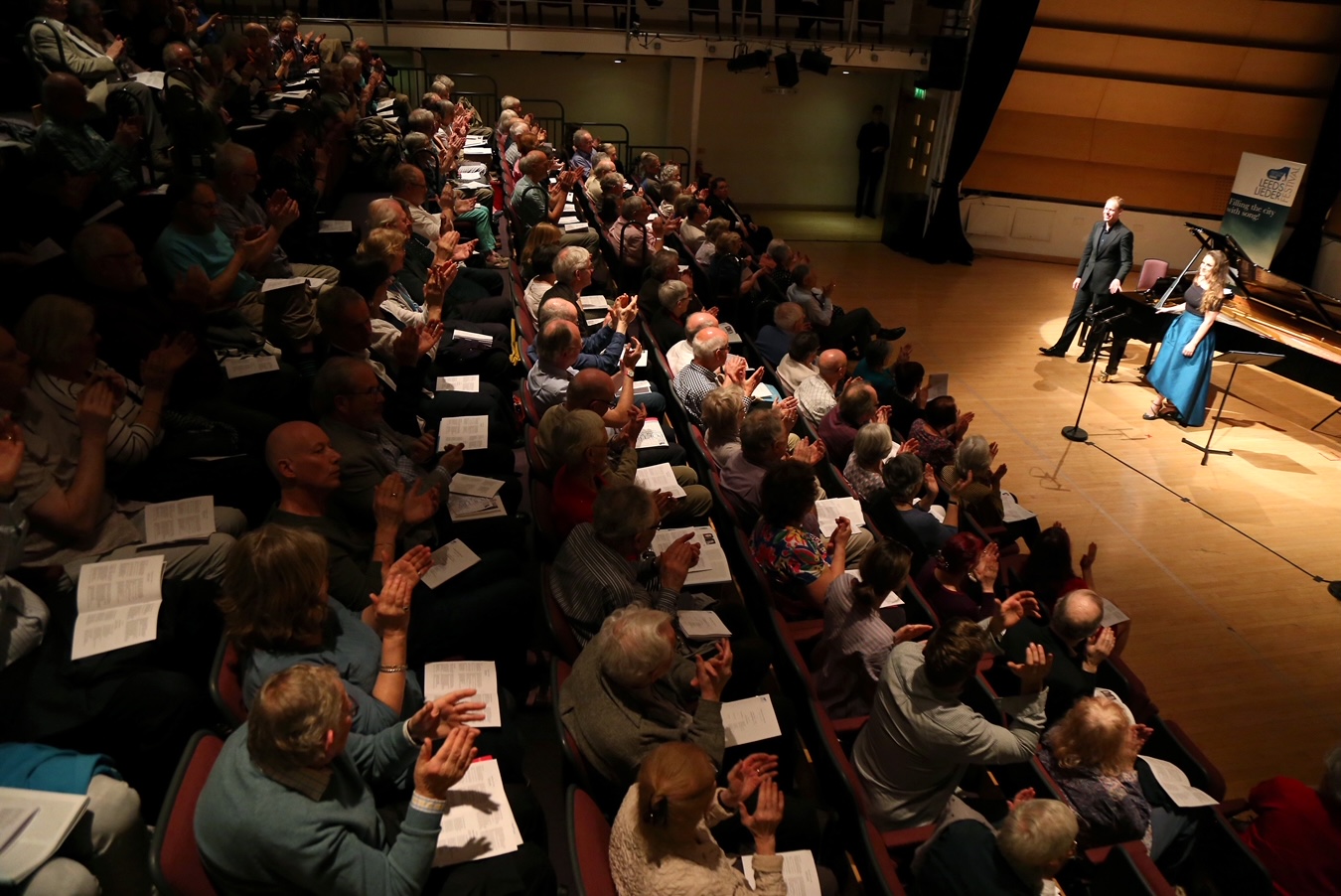
Stubbornness by individuals at the helms of funding bodies, politicians suffering from inverse snobbery married with a nervousness for championing anything cultural born of excellence and we are set on a course that is disastrous and in complete contrast with choices being made by most other western countries. For reference, France has just increased its culture budget by 7% and now spends £3.86bn on culture, a record. Germany has also recently boosted arts spending by 7% “in the face of the unprecedented crises of our time”. By comparison, ACE now spends £629m a year in England. (Pictured below: mezzo Angelika Kirchschlager in conversation with Andrew McGregor). 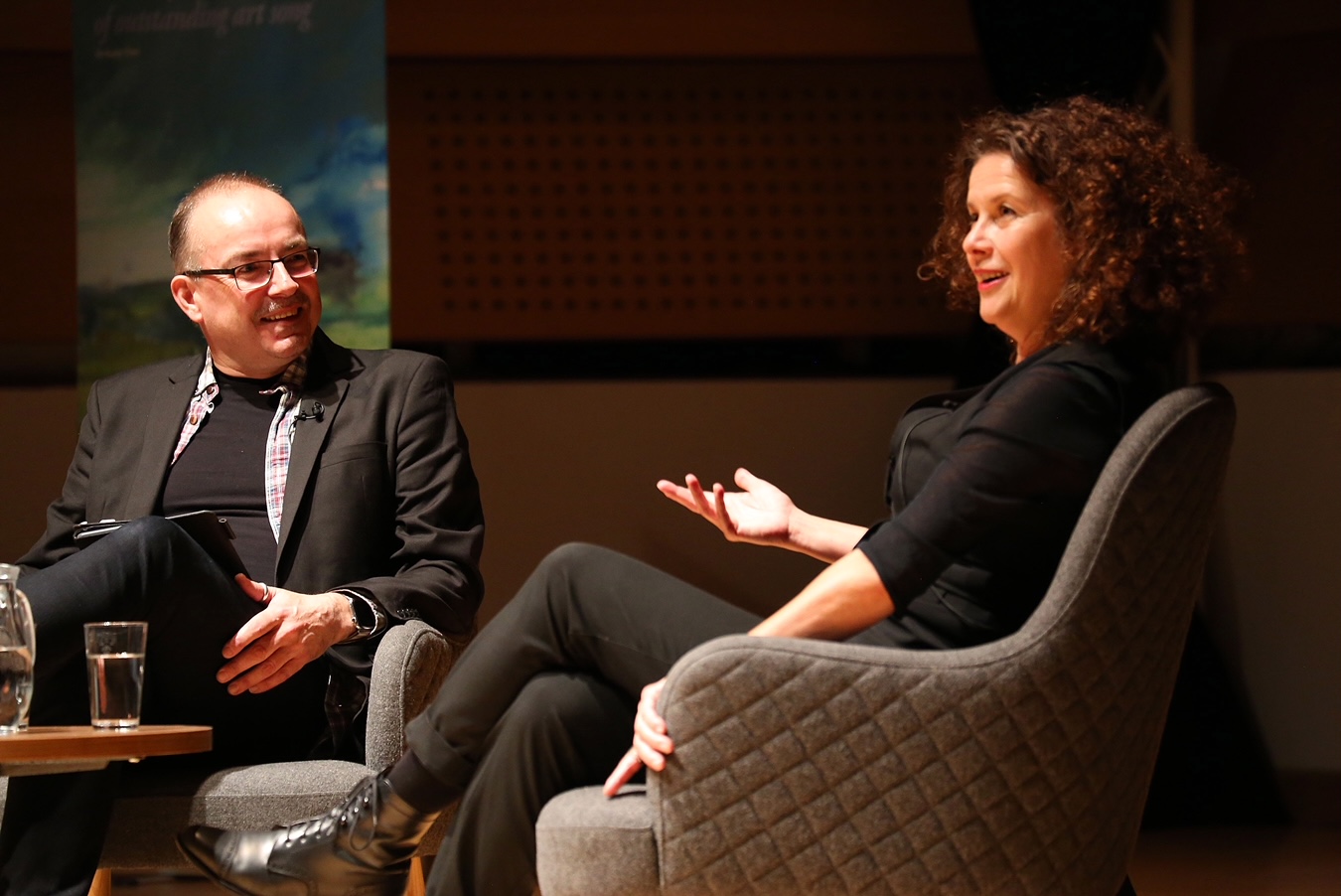
Leeds Lieder’s future education projects are now also in jeopardy and this is bad news at a time when the government is torching arts and humanities subjects. GSCE entries for arts subjects have dropped 40% since 2010 and the number of students taking Music GCSE has reached its lowest this century. This of course comes as no surprise since 2010 saw the introduction of the EBacc. With a generation of children failing to study music, it’s blindingly obviously that in a few decades we won’t have the teachers to teach music.
The elitism that certain corners of the political spectrum like to attribute to classical music is a self-fulfilling prophecy. No music in schools, only rich people can afford music lessons for their kids, only rich kids get to appreciate music. Job done. The Government is making sure vast swathes of the population are under-served in cultural provision. With only 5% of Leeds Lieder’s annual budget coming from our local authority, surely in return for filling a gigantic hole left by excluding the arts from the EBacc curriculum an organisation like ours might expect some public funding? This new lack of investment at Leeds Lieder means another section of society will also lose out. (Pictured below: masterclass with Amanda Roocroft). 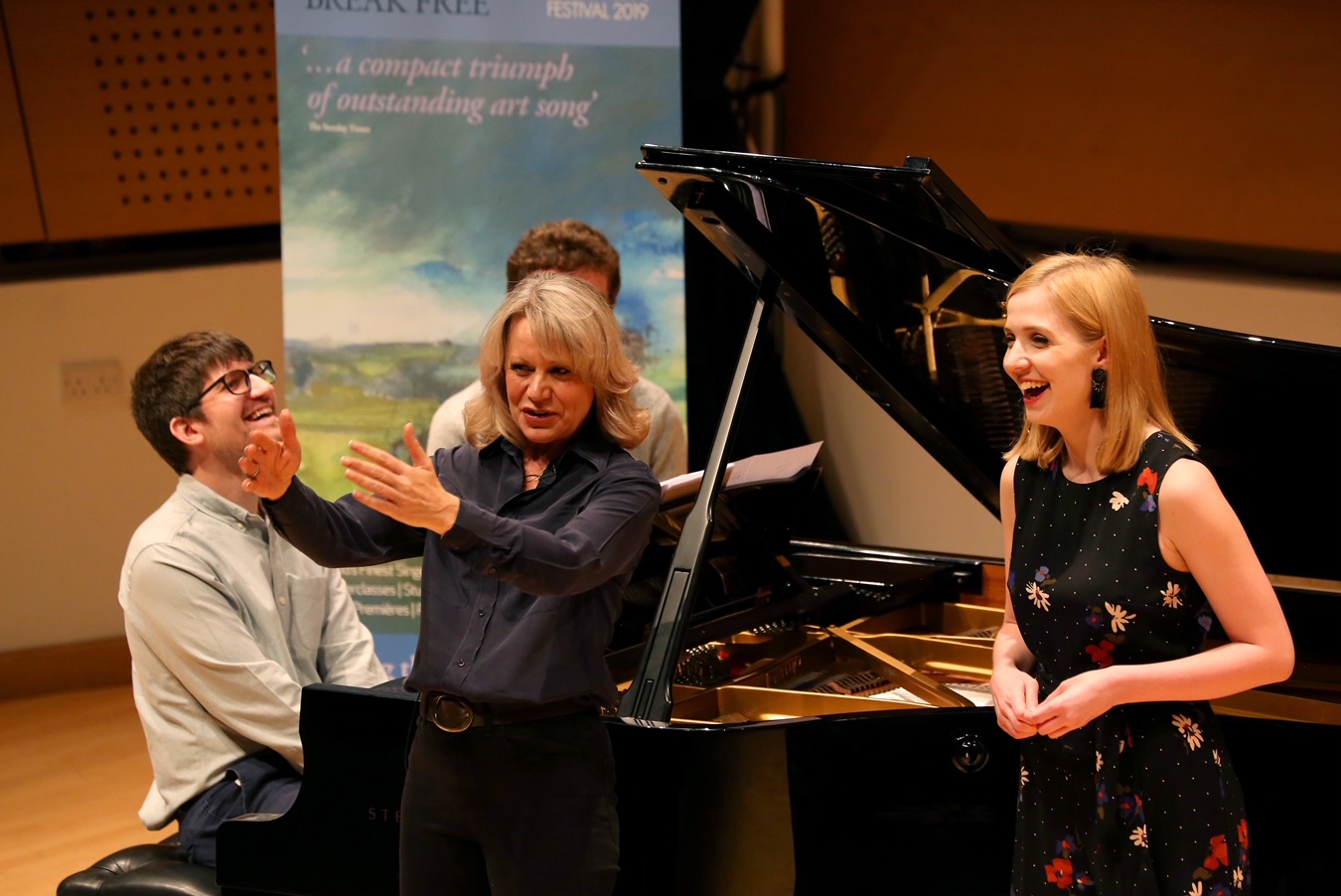
Levelling up is a catch-phrase constantly banded around, but if the government wants art to be experienced all over the country, invest in organisations already successfully doing this, like Leeds Lieder in Yorkshire, like the Britten Sinfonia in East Anglia, Psappa in Manchester, the Glyndebourne Tour to Liverpool, Canterbury, Norwich and Milton Keynes, all of whom have lost funding. All these organisations are now in jeopardy or have shut up shop. Many of us understand how to build culture into a community and we have given over our lives to champion this. The Government needs to ask, with total honesty, what kind of country do we want to live in? Nicola Benedetti borrowed the title of a book by Martin Luther King Jr for her Edinburgh Festival, “Where Do We Go From Here: Chaos or Community?” Right now, we’re in chaos and simply going down the wrong path.
A further plea from so many great musicians in this moving YouTube film
Explore topics
Share this article
Add comment
The future of Arts Journalism
You can stop theartsdesk.com closing!
We urgently need financing to survive. Our fundraising drive has thus far raised £49,000 but we need to reach £100,000 or we will be forced to close. Please contribute here: https://gofund.me/c3f6033d
And if you can forward this information to anyone who might assist, we’d be grateful.

Subscribe to theartsdesk.com
Thank you for continuing to read our work on theartsdesk.com. For unlimited access to every article in its entirety, including our archive of more than 15,000 pieces, we're asking for £5 per month or £40 per year. We feel it's a very good deal, and hope you do too.
To take a subscription now simply click here.
And if you're looking for that extra gift for a friend or family member, why not treat them to a theartsdesk.com gift subscription?
more Classical music
 Bizet in 150th anniversary year: rich and rare French offerings from Palazzetto Bru Zane
Specialists in French romantic music unveil a treasure trove both live and on disc
Bizet in 150th anniversary year: rich and rare French offerings from Palazzetto Bru Zane
Specialists in French romantic music unveil a treasure trove both live and on disc
 Scottish Chamber Orchestra, Ibragimova, Queen’s Hall, Edinburgh review - rarities, novelties and drumrolls
A pity the SCO didn't pick a better showcase for a shining guest artist
Scottish Chamber Orchestra, Ibragimova, Queen’s Hall, Edinburgh review - rarities, novelties and drumrolls
A pity the SCO didn't pick a better showcase for a shining guest artist
 Kilsby, Parkes, Sinfonia of London, Wilson, Barbican review - string things zing and sing in expert hands
British masterpieces for strings plus other-worldly tenor and horn - and a muscular rarity
Kilsby, Parkes, Sinfonia of London, Wilson, Barbican review - string things zing and sing in expert hands
British masterpieces for strings plus other-worldly tenor and horn - and a muscular rarity
 From Historical to Hip-Hop, Classically Black Music Festival, Kings Place review - a cluster of impressive stars for the future
From quasi-Mozartian elegance to the gritty humour of a kitchen inspection
From Historical to Hip-Hop, Classically Black Music Festival, Kings Place review - a cluster of impressive stars for the future
From quasi-Mozartian elegance to the gritty humour of a kitchen inspection
 Shibe, LSO, Adès, Barbican review - gaudy and glorious new music alongside serene Sibelius
Adès’s passion makes persuasive case for the music he loves, both new and old
Shibe, LSO, Adès, Barbican review - gaudy and glorious new music alongside serene Sibelius
Adès’s passion makes persuasive case for the music he loves, both new and old
 Anja Mittermüller, Richard Fu, Wigmore Hall review - a glorious hall debut
The Austrian mezzo shines - at the age of 22
Anja Mittermüller, Richard Fu, Wigmore Hall review - a glorious hall debut
The Austrian mezzo shines - at the age of 22
 First Person: clarinettist Oliver Pashley on the new horizons of The Hermes Experiment's latest album
Compositions by members of this unusual quartet feature for the first time
First Person: clarinettist Oliver Pashley on the new horizons of The Hermes Experiment's latest album
Compositions by members of this unusual quartet feature for the first time
 Gesualdo Passione, Les Arts Florissants, Amala Dior Company, Barbican review - inspired collaboration excavates the music's humanity
At times it was like watching an anarchic religious procession
Gesualdo Passione, Les Arts Florissants, Amala Dior Company, Barbican review - inspired collaboration excavates the music's humanity
At times it was like watching an anarchic religious procession
 Classical CDs: Camels, concrete and cabaret
An influential American composer's 90th birthday box, plus British piano concertos and a father-and-son duo
Classical CDs: Camels, concrete and cabaret
An influential American composer's 90th birthday box, plus British piano concertos and a father-and-son duo
 Cockerham, Manchester Camerata, Sheen, Martin Harris Centre, Manchester review - re-enacting the dawn of modernism
Two UK premieres added to three miniatures from a seminal event of January 1914
Cockerham, Manchester Camerata, Sheen, Martin Harris Centre, Manchester review - re-enacting the dawn of modernism
Two UK premieres added to three miniatures from a seminal event of January 1914
 Kempf, Brno Philharmonic, Davies, Bridgewater Hall, Manchester review - European tradition meets American jazz
Bouncing Czechs enjoy their Gershwin and Brubeck alongside Janáček and Dvořák
Kempf, Brno Philharmonic, Davies, Bridgewater Hall, Manchester review - European tradition meets American jazz
Bouncing Czechs enjoy their Gershwin and Brubeck alongside Janáček and Dvořák
 Solomon, OAE, Butt, QEH review - daft Biblical whitewashing with great choruses
Even a top soprano and mezzo can’t make this Handel paean wholly convincing
Solomon, OAE, Butt, QEH review - daft Biblical whitewashing with great choruses
Even a top soprano and mezzo can’t make this Handel paean wholly convincing

Comments
I'm a primary teacher in
I am devasted by this......
This article is terrifying